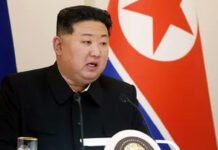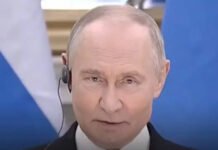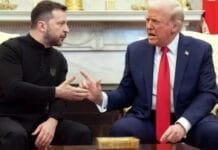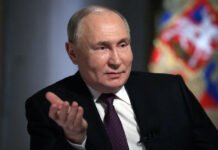Kyiv / Moscow / Washington D.C., October 23, 2025 – The ongoing Ukraine war has reached a critical stage as reports emerge of hundreds of Russian troops stranded along the Dnipro River, facing severe shortages of food, ammunition, and medical supplies. This development comes amid escalating U.S.-led sanctions on Russian oil firms, adding pressure to Moscow’s military operations and raising concerns over global energy stability.
According to Ukrainian military sources, a combination of strategic counter-offensives and logistical disruptions has trapped Russian forces in isolated positions. Satellite imagery shows large groups of Russian soldiers confined to small, vulnerable zones along the riverbank, with limited access to reinforcements.
“We are witnessing a situation that could severely impact Russian operational capabilities in the south,” said Colonel Andriy Shevchenko, a Ukrainian military analyst. “Stranded troops face extreme conditions, which could affect morale and combat efficiency.”
Oil Sanctions Intensify Pressure
The crisis coincides with President Donald Trump’s announcement of new sanctions targeting Russia’s largest oil companies, including Rosneft and Gazprom Neft. Analysts argue that restricted oil revenue directly limits Moscow’s ability to supply and sustain troops on the frontlines.
“Sanctions on Russia’s energy sector are not just an economic maneuver—they are increasingly a strategic tool affecting military logistics and decision-making,” noted Dr. Susan Park, a geopolitical analyst at the Center for Strategic Studies.
Global oil markets have reacted sharply to the combination of sanctions and military developments. Brent crude prices surged over 4% following the news, while WTI crude experienced a 3.8% increase. Energy-importing countries, including India and European nations, are bracing for the financial ripple effects of sustained high oil prices.
Humanitarian Concerns and Civilian Impact
Beyond military consequences, the stranded troops highlight the broader humanitarian crisis. Reports indicate that some Russian units are facing acute shortages of clean water, food, and medical supplies. Aid organizations warn that prolonged isolation could lead to casualties and increase the urgency for international monitoring.
“These conditions represent a humanitarian concern, even for combatants,” said Maria Ivanova, director of a European humanitarian NGO. “Immediate attention is needed to prevent unnecessary loss of life.”
Global Geopolitical Implications
The combined effect of military setbacks and sanctions is prompting global leaders to reassess alliances, energy security, and diplomatic strategies. Countries dependent on Russian oil may be forced to pivot to alternative suppliers, while NATO and EU nations monitor Ukraine’s counter-offensives closely.
“This situation underscores how interconnected modern conflicts are with global energy markets and economic policies,” said Dr. Rajiv Mehta, energy policy expert at the Observer Research Foundation. “A disruption in one region reverberates worldwide.”
Russia’s Strategic Response
Moscow has acknowledged logistical challenges but downplayed the severity of stranded units. State media reports emphasize continued military operations in eastern Ukraine and the government’s commitment to supporting troops in the field. Analysts, however, caution that prolonged isolation combined with sanctions could weaken Russia’s overall operational capacity and bargaining position in ongoing peace or ceasefire negotiations.
Looking Ahead
The next few weeks are critical, as international stakeholders monitor troop movements, sanction enforcement, and the potential for further escalation. Energy market volatility is likely to persist, while global policymakers weigh diplomatic and economic strategies to mitigate further disruption.
“The Ukraine conflict is entering a phase where military logistics, economic sanctions, and international diplomacy converge,” added Colonel Shevchenko. “How each side adapts will define the next stage of this war and its global consequences.”
Conclusion
The Ukraine war’s latest developments—stranded Russian troops and escalating oil sanctions—highlight the growing complexity of modern conflicts, where military, economic, and humanitarian dimensions intersect. Global markets, governments, and energy sectors remain on high alert as the situation continues to evolve.
















